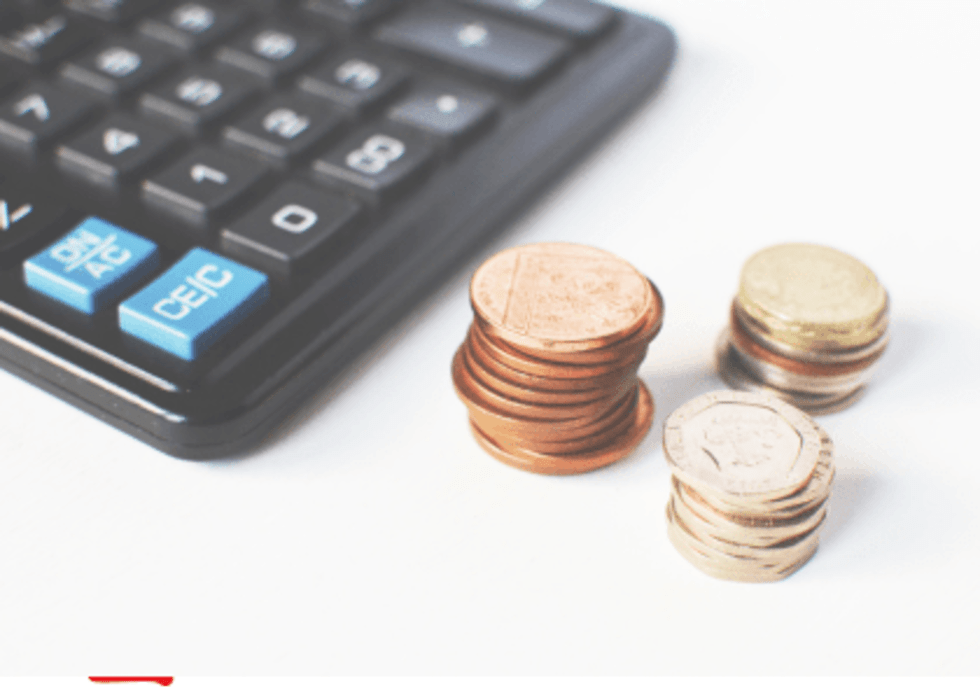Domestic VS commercial cleaning:
If all your clients -or the majority- are domestic cleans, then it does not normally make sense to voluntarily register for VAT (though, if you go over the threshold, then you will have to register- see below). As households can't reclaim the VAT, you would suddenly become more expensive. Therefore, you might potentially lose some customers, as they don't want to pay a higher fee.
Commercial cleaning is a bit different. It's quite likely that your commercial cleaning clients are VAT registered (though, don't just assume- check!). Therefore, they can reclaim any VAT that you charge them on their VAT returns.
Likewise, if you are registered for VAT, then to some commercial clients you might come across as more established (as it normally means that you turnover is more than £90,000; see the threshold part below). This might be reassuring to some potential clients, as of course, people like to deal with established businesses.
What is the VAT threshold?
You must register if:
· Your total VAT taxable turnover for the last 12 months was over £90,000 (the VAT threshold)
· You expect your turnover to go over £90,000 in the next 30 days
You must also register (regardless of VAT taxable turnover) if all of the following are true:
· You’re based outside the UK
· Your business is based outside the UK
· You supply any goods or services to the UK (or expect to in the next 30 days)
What are the benefits of registering for VAT?
If your business falls above the VAT threshold then registering for VAT is vital to stay within the law. However, VAT isn’t just a matter for large businesses and it’s definitely worth weighing up the pros and cons of this.
On the plus side, becoming VAT registered means that:
You’re ready for growth. If you register, then you don’t need to watch out for the vat threshold. It may also help to give the impression that you business is ready to expand.
You can reclaim any vat that you are charged on goods and services that you buy.
If you’re not charging vat, then other businesses will know that your turnover is below the threshold and may make some assumptions based on that.
On the downside:
You could end up paying more to HMRC. This is if your ‘output tax’ is more than your ‘input tax'.
Have to spend more time on paperwork. VAT is a tax collected by businesses on behalf of the Government and you’ll need to file a return, adding to your potential workload. (This is where good accounting software is necessary).
Have to pass on higher prices to customers, especially if you typically deal with the general public and not VAT registered businesses (who are able to reclaim VAT).
If your turnover is below the VAT threshold, it’s important to look at the pros and cons carefully for your situation and seek professional help if you are unsure.
Which VAT scheme should I use?
There are a number of different VAT schemes open to businesses and so it’s important to consider which is best for your business. The most commonly used schemes are:
The Standard VAT Scheme. This is common amongst businesses of all sizes. The VAT you pay is calculated on the invoice dates not when payments are actually made/ received. VAT returns are normally filed on a quarterly basis.
Cash Accounting Scheme: This is common among small businesses as you only need to pay HMRC the VAT income you’ve actually received during a quarter. This does, however, mean that you can’t claim VAT back for any invoices that haven’t been paid. Businesses have to have a turnover below £1.35 million to be able to access this scheme.
The Flat Rate Scheme: This is for businesses with a turnover of less than £150,000. Under this scheme you pay a percentage of your turnover to HMRC, with set rates for individual industries, but can’t claim back VAT you incur on purchases.
Annual Accounting Scheme: Instead of making quarterly returns, this scheme lets you make advance payments towards your bill throughout the year. You then file one VAT return and pay the balance – or claim back a refund for any overpayments. This is only eligible for businesses with a turnover below £1.35 million.
The above are the main options, although there are a number of VAT retail schemes for businesses in that sector.
What info do I need to register for VAT?
If you want to register for VAT then this can be done online in most cases (or by using paper form VAT1). Before you log on and begin your registration, you need the following information to hand:
Your Unique Tax Reference. This is a ten-digit number you’ll have been sent when registering to pay Corporation Tax.
Your business’ bank account details.
Your company number and registered address.
Details of any associated businesses from the past two years.
You will also need the details of any businesses being transferred or bought, if applicable.

